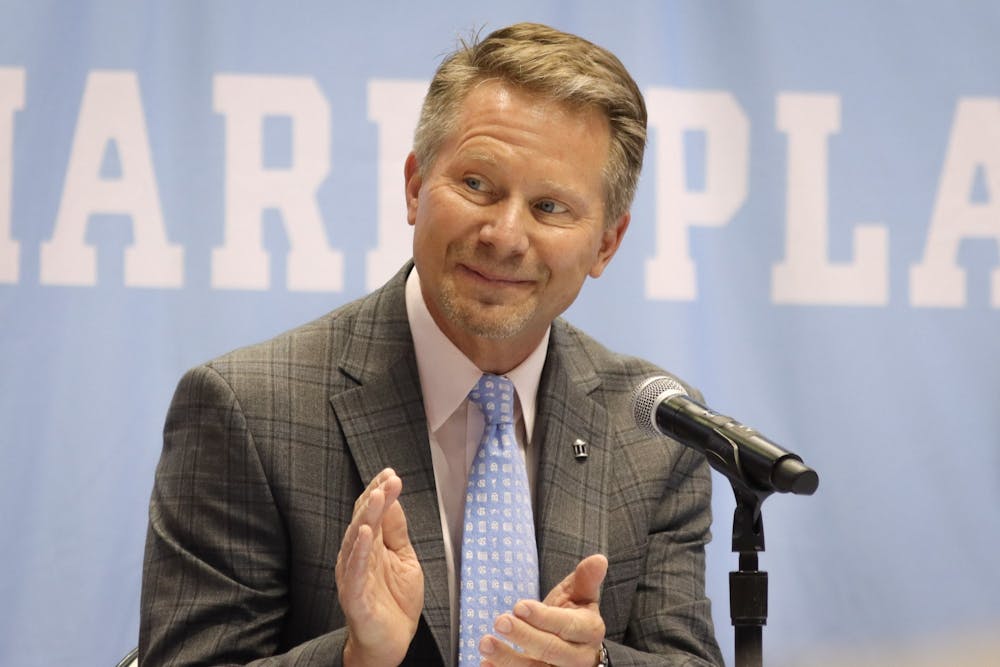As the first week of classes for UNC's fall semester concluded, Editor-in-Chief Praveena Somasundaram spoke with Chancellor Kevin Guskiewicz virtually to discuss COVID-19, the University's reopening and future plans for UNC.
This interview has been edited for brevity and clarity.
The Daily Tar Heel: In October, you’ll be coming up on one year officially as the Chancellor of UNC and leading the University through challenging periods. How are you feeling about that?
Kevin Guskiewicz: I’m feeling very optimistic. It’s been great to be out around campus the past week, moving in, welcoming students back about ten days ago. I feel very optimistic that we’ve put a good plan in place. We’ve planned extensively for return to in-person instruction and we will continue to monitor the situation and we work closely alongside our world class public health experts as well as the Orange County Health Department and we believe that with the right approach, as I’ve said before, we don’t have to choose between safety and in-person learning. I think with respect to the pandemic and managing that, I think our layered approach can work. We’re going to rely on everyone being responsible, playing an important role in keeping the community safe.
We can dial these safety measures up and down as needed to try to help control the spread of the virus and try to maintain our ability for in-person learning. I’m feeling really good right now about that, but we have to continue to emphasize that there will be positive cases on our campus, as we’ve seen those positivity rates across the state go up over the past three weeks.
DTH: With the rising cases and prominence of the delta variant, faculty, staff and students are concerned about the reopening. Does the University plan to have an off-ramp or other measures if COVID-19 on campus gets more dire?
KG: The twice-a-week testing really came about because we felt an additional layer could be helpful to try to identify cases. Again, seeing that we’ve had over the past three weeks increased positivity rates across the state, we have an incredible testing program — our Carolina Together Testing Program — we have the capacity to test more students. Last spring, we were testing upwards of 10, 11,000 people a week. So, we have the capacity to do that.
Eighty-eight percent of our students have attested to their vaccination status, and we have about 2,600 students that have either not attested to it or have indicated that they are not vaccinated or will choose not to be vaccinated. So, those 2,600 students will need to be tested twice a week, and I think it’ll provide just an extra layer of protection. So, that’s one example of a change that we’ve made, again, in consultation with our infectious disease and public health experts, as well as with my Campus and Community Advisory Committee — I want to emphasize the importance of that committee.
Their input is very important and we’ll continue to, again, monitor changes here locally and if modifications need to be made to any of the current standards, we will be prepared to do that.




